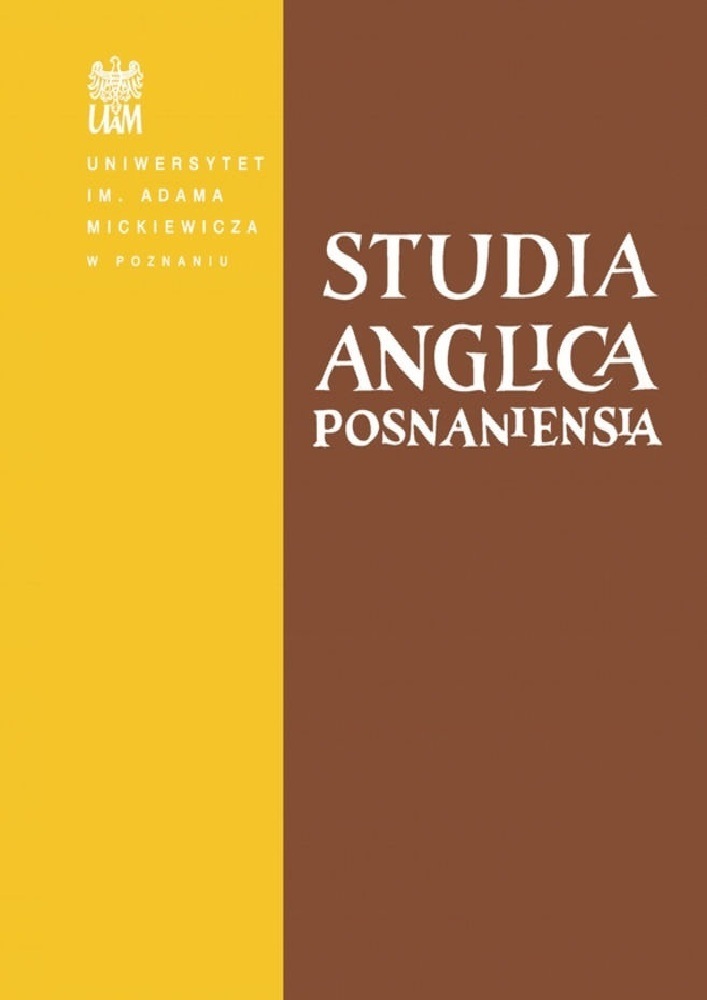Abstract
This article argues that David Mitchell’s novel The Thousand Autumns of Jacob de Zoet (2010) represents a new variation of the genre of historical fiction. The historical novel in Britain has risen to prominence since the 1980s and in the twenty-first century this strong interest in the past continues. Placing David Mitchell’s book in the context of recent historical fiction, the article takes account of Joseph Brooker’s hypothesis that, together with Hilary Mantel’s Tudor novels, The Thousand Autumns of Jacob de Zoet may be indicative of an emergent trend in the contemporary English historical novel. The purpose of the article is to identify and explore Mitchell’s key strategies of writing about history. It is argued that, departing from the prevalent mode of historiographic metafiction, Mitchell’s book adheres to some of the traditional tenets of the genre while achieving the Scottian aim of animating the past in innovative ways. The analysis leads to the conclusion that the use of the present tense, the subjective perspectives, and the exclusion of foreknowledge lend the novel dramatic qualities.References
Mitchell, David. 2011a [2010]. The Thousand Autumns of Jacob de Zoet. London: Sceptre.
Bayer, Gerd. 2014. Cannibalising the Other: David Mitchell’s The Thousand Autumns of Jacob de Zoet and the incorporation of ‘exotic’ pasts. In Elodie Rousselot (ed.), Exoticizing the past in contemporary neo-historical fiction, 103–119. Basingstoke: Palgrave Macmillan. DOI: 10.1057/9781137375209_7
Beville, Maria. 2016. Getting past the ‘post-’: history and time in the fiction of David Mitchell, [sic]: Književnost i Kultura 1(6). https://www.sic-journal.org/ArticleView.aspx?aid=353 (accessed 20 December 2017). DOI: 10.15291/sic/1.6.lc.1
Boccardi, Mariadele. 2009. The contemporary British historical novel: representation, nation, empire. London: Palgrave Macmillan.
Boulter, Jonathan. 2011. Melancholy and the archive: trauma, history and memory in the contemporary novel. London: Continuum.
Brooker, Joseph. 2015. Reanimating historical fiction. In David James (ed.), The Cambridge companion to British fiction since 1945, 160–176. Cambridge: Cambridge University Press. DOI 10.1017/CCO9781139628754.012
Byatt, A. S. 2001. On histories and stories. Selected essays. London: Chatto & Windus.
Charles, Ron. 2010. Review of The Thousand Autumns of Jacob de Zoet, a novel by David Mitchell. The Washington Post 30 June. https://www.washingtonpost.com/wpdyn/content/article/2010/06/29/AR2010062904512.html (accessed 24 April 2017).
Eggers, Dave. 2010. Empire of desire. Review of The Thousand Autumns of Jacob de Zoet. The New York Times 1 July. https://www.nytimes.com/2010/07/04/books/review/Eggerst.html (accessed 24 April 2017).
Dillon, Sarah. 2011. Introducing David Mitchell’s universe. A twenty-first century house of fiction. In Sarah Dillon (ed.), David Mitchell. Critical essays, 3–23. Canterbury: Gylphi Limited.
Fleishman, Avrom. 1971. The English historical novel. Baltimore, MD & London: Johns Hopkins University Press.
Genette, Gérard. 1983. Narrative discourse. An essay in method. Translated by Jane E. Lewin. Ithaca, NY: Cornell University Press.
Groot, Jerome de. 2010. The historical novel. London & New York: Routledge.
Harris, Paul A. 2015. David Mitchell in the laboratory of time: An interview with the author. SubStance 44(1) (David Mitchell special issue). 8–17. DOI: 10.1353/sub.2015.0000
Hutcheon, Linda. 1988. A poetics of postmodernism: History, theory, fiction. New York: Routledge.
Jackson, Tony E. 1999. The desires of history, old and new. CLIO: A Journal of Literature, History, and the Philosophy of History 28(2). 169–187.
Kakutani, Michiko. 2010. Dutchman sees life in Japan long ago. The New York Times June 28. https://www.nytimes.com/2010/06/29/books/29book.html (accessed 21 November 2017).
Keen, Suzanne. 2001. Romances of the archive in contemporary British fiction. Toronto: University of Toronto Press.
Keen, Suzanne. 2006. The historical turn in British fiction. In James F. English (ed.), A concise companion to contemporary British fiction, 167–187. Malden, MA & Oxford: Blackwell Publishing. DOI: 10.1002/9780470757673.ch8
Larsonneur, Claire. 2015. Revisiting Dejima (Japan): From recollections to fiction in David Mitchell’s The Thousand Autumns of Jacob de Zoet (2010). SubStance 44(1) (David Mitchell special issue). 136–147. DOI: 10.1353/sub.2015.0004
Larsonneur, Claire. 2016. Weaving myth and history together: Illustration as fabrication in David Mitchell’s Black Swan Green and The Thousand Autumns of Jacob de Zoet. Image [&] Narrative 17(2). 24–33.
Lea, Richard. 2015. Make it now: the rise of the present tense in fiction. The Guardian 21 November. https://www.theguardian.com/books/2015/nov/21/rise-of-the-present-tense-in-fiction-hilary-mantel (accessed 30 January 2017).
Lukács, Georg. 1963. The historical novel. Translated by Hannah & Stanley Mitchell. Boston, MA: Beacon Press.
Mitchell, David. 2011b. On historical fiction. In David Mitchell, The Thousand Autumns of Jacob de Zoet, 555–560. London: Sceptre.
O’Donnell, Patrick. 2015. A temporary future. The fiction of David Mitchell. New York, NY & London: Bloomsbury.
Pierce, Leonard. 2010. Cloud Atlas and The Thousand Autumns of Jacob de Zoet – interview with David Mitchell. A.V. Club 6 August. https://www.avclub.com/article/icloud-atlasi-andithe-thousand-autumns-of-jacob-d-43908 (accessed 4 May 2017).
Rigney, Ann. 2001. Imperfect histories. The elusive past and the legacy of romantic historicism. Ithaca, NY: Cornell University Press.
Rimmon-Kenan, Shlomith. 1991. Narrative fiction: Contemporary poetics. London & New York, NY: Routledge.
Rousselot, Elodie. 2014. Introduction: Exoticising the past in contemporary neo-historical fiction. In Elodie Rousselot (ed.), Exoticizing the past in contemporary neo-historical fiction, 1–16. Basingstoke: Palgrave Macmillan.
Schoene-Harwood, Berthold. 2009. The cosmopolitan novel. Edinburgh: Edinburgh University Press.
Scott, Walter. 1834. Essay on romance. In Walter Scott, Essays on chivalry, romance, and the drama, 127–216. Edinburgh: Robert Cadell.
Simon, Scott. 2010. How David Mitchell brings historical fiction to life, NPR, Weekend Edition Saturday. 21 August. https://www.npr.org/templates/story/story.php?storyId=129321886&ft=1&f=1032 (accessed 24 April 2017).
Watt, Ian. 1979. Conrad in the nineteenth century. London: Chatto & Windus.
Wesseling, Elisabeth. 1991. Writing history as a prophet: Postmodernist innovations of the historical novel. Amsterdam & Philadelphia, PA: John Benjamins. DOI: 10.1075/upal.26
Wood, James. 2010. The floating library: What can’t the novelist David Mitchell do?, The New Yorker 5 July. https://www.newyorker.com/magazine/2010/07/05/the-floating-library (accessed 24 April 2017).
